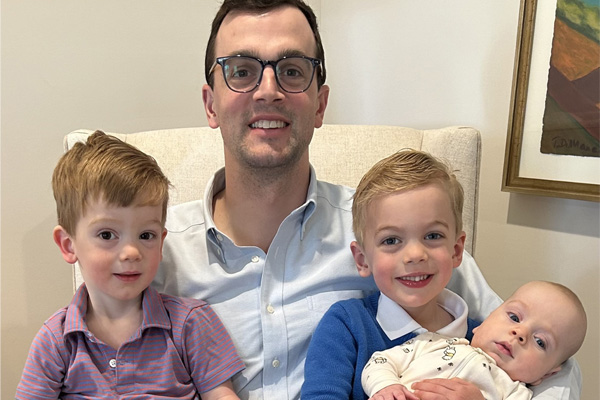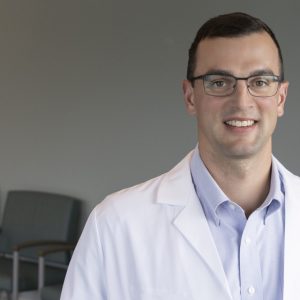From its safety and effectiveness to the cancers it helps prevent, Dr. Garrett Wren answers FAQs about the HPV vaccine for boys.
HPV is the most commonly transmitted STI, affecting 13 million Americans a year. In most cases our immune systems remove the virus from the body, but for over 30,000 Americans each year, it causes cancer.
Since the HPV vaccine came out in 2006, HPV-related infections have already gone down, but over 4,000 women still die each year from cervical cancer in the US. While there’s a perception that HPV is only a problem for women, and thus the HPV vaccine is more important for girls than boys, the reality is that HPV can cause genital, mouth, and throat cancers in both women and men. Both unvaccinated men and unvaccinated women increase the risk for themselves as well as their partners.
Any safe and easy-to-administer intervention that reduces cancer risk is something we should all be interested in – yet, only about 50% of the eligible population has gotten the HPV vaccine. How can we do better for our families and communities? Vaccinating both boys and girls with the HPV vaccine – Gardasil-9 – is the answer.

As an OB/GYN committed to improving women’s health, and as a father of three boys, I know that getting the HPV vaccine for my boys is a proven cancer-reducing plan – both for them and for their future partners.
Here are answers to questions I’ve heard about the HPV vaccine for boys and young people.
How common are HPV and HPV-related cancers?
Nearly all (85%) unvaccinated sexually active people will be infected with HPV in their lifetime. According to the CDC, each year in the US there are about 21,000 new cancers caused by HPV in women and 15,000 in men.
What cancers does the HPV vaccine help prevent?
HPV can cause cervical, vaginal, vulvar, penile, anal, and oropharyngeal cancers. Prevention with the vaccine is the only method to reduce the risk of developing these cancers.
Can men get tested for HPV?
While women are routinely tested for HPV at annual visits with their OB/GYN, there is currently no test to detect HPV in men.
Why should boys get the HPV vaccine?
While genital HPV-related cancers in men are less common, men are seeing increasing rates of mouth and throat cancers that could be prevented with vaccination. In fact, since there is no treatment or screening test available for HPV in men, prevention with the vaccine is the best and only option. Oral and throat cancers often go undetected until they are in more advanced stages, unlike cervical cancer which can be caught early during routine screenings (Pap tests).
Vaccination of boys not only reduces their personal risk, but also reduces the risk of their future partners – and their potential offspring. HPV transmitted to women can cause changes in the cervix that increase the risk to a future pregnancy.
How effective is the HPV vaccine?
Very. The HPV vaccine blocks 96-99% of the 9 types of HPV it was designed to stop.
Is the HPV vaccine safe for boys? Is it safe for girls?
Yes. With over 200 million doses given since 2006, there are not any reports of serious adverse effects of the HPV vaccine for boys or for girls.
Is the vaccine required for school in Virginia?
Yes. Effective July 1, 2021, a complete series of 2 doses of HPV vaccine is required. The first dose should be administered before the child enters the 7th grade.
Can you refuse to have your child vaccinated with the HPV vaccine?
Yes. The Virginia Department of Health does allow the parent or guardian to opt out of the HPV vaccine after reviewing recommended educational material.
Could the HPV vaccine cause infertility in boys or girls?
No. Despite some media and online attention suggesting harmful effects of some vaccines, safety data for Gardasil-9 has not shown any link to infertility.
Are there any risks or side affects associated with getting the HPV vaccine?
There is a risk of a brief localized reaction such as swelling or redness. However, after nearly 20 years of reporting, the Vaccine Adverse Events Reporting System has reported no serious or long-term adverse effects.
Do you have any tips for discussing the HPV vaccine with kids?
By age 11-12, kids are used to getting vaccines periodically at their checkups. This is just another shot that protects against a preventable infection. While HPV infections come from sex, getting the vaccine doesn’t have to be about sex. (Kind of like the hepatitis vaccine.) Kids will be pleased that they only have to get 2 shots if they complete the series before age 15.
What age should boys get the HPV vaccine?
The CDC recommends that boys get the HPV vaccine at age 11 or 12 (first dose), followed by a second dose 6–12 months later. After 15, 3 shots are recommended. This age group is statistically more likely to have been sexually active. The vaccine works best before exposure to HPV, so the earlier, the better.
Young men and women up to age 26 can get the vaccine. After age 26, they should discuss with their doctor. There are still benefits for cancer risk reduction even after a person has started a sexual relationship or had an abnormal pap smear.
Protecting Our Children Long Before HPV Exposure
As parents, you have to make the best choices for your children and consider all the research. There is a lot to think about when it comes to healthcare choices for our kids, but this decision is an easier one. The HPV vaccine should be given to both boys and girls at age 11 or 12, long before HPV exposure. It’s safe, it works, and it has a proven track record of reducing cancer.
At the small risk of getting a sore arm for a day, let’s fight cancer before it even starts. I know my boys will receive the Gardasil vaccine, and I hope you will join me in reducing the HPV-related harms for both men and women.
To schedule an appointment with a VPFW provider, you can call us at 804-897-2100 or set an appointment online.
